I recently had my attention drawn to an interesting article in The Lancet, a weekly British medical journal that is arguably the most respected, and certainly the oldest publication of its kind. While not on my usual reading list, my interest was piqued when I was told that a May 2023 article centered on how a Pakistani public health organization, Interactive Research and Development (IRD) had been the subject of an international court case against a global healthcare funding giant, The Global Fund to Fight AIDS, Tuberculosis, and Malaria (The Global Fund).
It turned out that while most of us have never heard of the case, it is considered quite the scandal in healthcare development circles – having, as it does, all the ingredients for a Netflix real-life documentary and a follow-up blockbuster mini-series.
This is a story involving tens of millions of dollars in foreign funding, allegations of corruption, reluctant witnesses, rogue judges, and even a missing Global Fund staff member. To this already riveting mix, add deteriorating international relations between the US and Pakistan, centering on allegations of prominent International NGOs’ involvement in espionage activities. Even Osama Bin Laden has a walk-on part in the whole affair. Then, to all of this, add more than just a dash of neo-colonialism and it’s not too hard to imagine what a canny producer could make of such a story.
Above all, however, it is a story about how the hopes of thousands of innocent Pakistanis suffering from a fatal disease were sacrificed at the altar of Western hubris. Ordinary men, women and children suffering from tuberculosis who, as a result of what a High Court Judge described as an intentional campaign by the Global Fund to smear IRD, were abandoned mid-treatment to suffer the consequences of an arbitrary decision about which they had little understanding and over which they had even less control; their hopes dashed by the stroke of a pen in an elegant Swiss boardroom far from the squalor of Pakistan’s towns and villages where most of the patients, who they condemned to an uncertain future, lived.
The relationship between IRD and the Global Fund started in 2010 when IRD partnered with Indus Hospital in Karachi to provide free tuberculosis care – as part of a Global Fund grant – to vulnerable patients across Pakistan. In 2016, for reasons described below, Indus Hospital became the principal recipient of a Global Fund grant to provide free treatment to tuberculosis patients in Pakistan.
2016 was a tumultuous year for the development sector in Pakistan. Just one year earlier, the Government of Pakistan had felt confident enough in the findings of ongoing investigations into alleged covert espionage activities by International NGOs to formally order the closure of 15 such humanitarian organizations. The Government alleged that they had abused their humanitarian mandate and illegally gathered information on Pakistani citizens for foreign intelligence agencies.
The Pakistani authorities determined that one organization – Save the Children – had even conducted a bogus Hepatitis B vaccination program which, they alleged, led to the subsequent killing by US Special Forces of no less an individual than Osama Bin Laden on Pakistani soil (an allegation they vehemently denied). As a result, Save The Children, along with fourteen other INGOs, was forced to close its operations and foreign staff were ordered to leave Pakistan. For international donor organizations like the Global Fund, this meant that they had to now pivot to funding local organizations, at least until the furore died down.
Indus Hospital had, for several years, been a reliable partner for the Global Fund and no one was particularly surprised when they were asked to step into the breach. Indus became the principal recipient of nearly $40 million in a grant agreement which also allowed them to contract IRD as a long-term technical assistance supplier without a competitive tender.
The program, according to senior global health experts – from such renowned institutions as the Harvard Medical School and Johns Hopkins Bloomberg School of Public Health, among others – was beyond reproach. One prominent US expert subsequently asserted to the Global Fund that Indus Hospital and IRD were “among the best implementers of TB control in the world”.
Salmaan Keshavjee, Professor of Global Health and Social Medicine at Harvard Medical School went so far as to say that the project was “a model of how countries can rapidly address the TB emergency”. In a letter to The Global Fund, he went on to say that the project had brought down rates of tuberculosis by over 20%. “Their success is really one of the few remarkable TB successes that The Global Fund can point to as a result of its funding”, he added.
So what went wrong?
In 2019, Indus Hospital received a letter from the Office of the Inspector General (OIG) of the Global Fund informing them of an investigation into Indus and IRD’s practices under the grant. According to Dr Aamir Khan, the founder and Executive Director of IRD, the shock amongst the team was palpable.
“Indus and IRD had been praised for our efforts, both locally and internationally and, most importantly, our team was rightly proud that we had such a positive impact on the lives of vulnerable patients,” he said. “We tried to continue as best we could after Indus was informed of the ending of the grant,” he continued, “but the uncertainty and shock were affecting team members and there was a real fear that patient treatment might be compromised, putting lives at risk.”
In 2021, the Global Fund finally published their report accusing Indus Hospital of anti-competitive practices, collusive behavior, and conflicts of interest involving IRD and Indus Hospital. The allegations were immediately and vehemently denied by IRD who claimed that all practices had been agreed by the Global Fund’s own Portfolio Manager. Tellingly, perhaps, the report was also rejected by the Pakistani Government.
The report into the whole sorry affair by The Lancet was published in May of this year during which the writer’s efforts to track down the erstwhile Portfolio Manager proved unsuccessful. It seemed that the one person able to set the record straight was missing in action. IRD, however, did have an ace-in-the-hole. Unbeknownst to IRD’s accusers, the Portfolio Manager had reached out to Khan in a series of WhatsApp messages in which he expressed his dissatisfaction with the Global Fund’s treatment of IRD and Indus Hospital.
“I really want to convey to you that this abrupt end of the TIH [The Indus Hospital] implementation was not my decision at all. That came from above. It was even difficult to get this closure period approved…”, he says in one message.
In another message he describes the OIG report as “wrong” and “extremely biased”, even going so far as to call his employers “cowards”, suggesting that he was made to write particular emails and messages.
IRD immediately initiated legal proceedings against The Global Fund in Pakistan and South Africa – where it has major projects and partnerships and because in Switzerland, where the Global fund has its headquarters, they are generally immune from prosecution. While the judge in the South African hearing found that he did not have jurisdiction in the case, the Portfolio Manager’s messages, amongst other material facts, were persuasive enough for him to opine that “[t]he [OIG report] substantially retains alleged findings against IRD that are demonstrably inaccurate, misleading and false. Given IRD’s detailed submissions and responses,” the judgment continued, “The Global Fund had before it all the relevant and true facts. Its smearing of IRD and maintaining false assertions against IRD is, without any question, intentional.”
For IRD, this was a huge win setting the scene for a defamation suit which Khan is confident they can win. IRD believes that only a retraction of the OIG report will suffice to restore any reputational damage and is determined to pursue action against The Global Fund to ensure others do not have to face similar damage.
Khan himself was not entirely unaffected by the allegations. The decision to take on a global giant like The Global Fund was a daunting one and he admits to a few sleepless nights as he and the rest of the senior leadership pondered what IRD should do. Three things, however, convinced him that IRD had a responsibility to not back down. “First and foremost, the injustice of the situation and the impact decisions like this have on patients’ lives convinced us that we had to stand up for what was right,” he said. “Secondly, on a more personal level, rather than becoming anxious or even angry, I felt a sense of calm descend which was a spiritual, almost transcendental experience. If anything, this ordeal has made me a better, more spiritual person; a positive takeout from this whole affair for which I’m actually grateful.”
The third reason was the determination shown by the entire IRD leadership. They, according to Khan, neither hesitated nor panicked: “They were – and remain – determined that this injustice could not be allowed to stand and have been relentless in their pursuit of justice.”
IRD board members, according to Khan, are united in their belief that The Global Fund be held accountable. “In the midst of a global pandemic,” he said, “the Fund chose to callously, and with no clear plan for what might befall vulnerable patients, shut down a major public health program. Not only has IRD’s reputation been damaged by these baseless accusations, but we firmly believe that the confusion and uncertainty created by the Global Fund’s decisions compromised the quality of care received by TB patients, including those with drug-resistant TB.”
The Executive Director of IRD is also critical of the appearance that international donors favor international NGOs (INGOs) when funding life-saving healthcare projects over local partners. “Above all else, we care deeply about what happens to our patients and I challenge anyone to prove that we are not as competent – at least – as international practitioners,” he said. “Sadly, however, we are often sidelined for what I can only surmise are political reasons. There is no doubt in my mind that international donor organizations play a vital role in providing funding for healthcare programs in Pakistan. However, any critical examination reveals that their funding practices often perpetuate neo-colonial dynamics and show a bias in favor of INGOs over local Pakistani organizations.”
Khan is not alone in this belief. Academics and experts around the world have made similar claims, highlighting that such practices contribute to a culture of dependency on external aid. The concern persists that by prioritizing INGOs donors perpetuate a reliance on foreign assistance, hindering the growth of local institutions, and ultimately inhibiting the long-term development of robust local healthcare infrastructures.
This is something that will no doubt be examined as IRD launches its defamation proceedings against the Global Fund, but in a telling footnote to the case, after the OIG report came out IRD and Indus Hospital were given just a few short months to wrap things up and hand over their work to their replacement: the US-based International NGO, Mercy Corps.
Into this choice of international partner and the apparently unseemly haste to dislodge the demonstrably successful incumbents, read what you will.
As for the Global Fund, itself, ProPakistani reached out to them on two occasions asking for their comments, but no statement was received from them at the time of writing. In the interest of fairness, however, it is pertinent to mention The Global Fund’s statement responding to The Lancet, in which a spokesperson said that they stood by the OIG findings, insisting that IRD had engaged in ‘prohibited practices’ which have ‘enriched IRD and deprived patients and health systems in Pakistan of much-needed resources.”
For Khan, however, this is a bigger battle than a simple legal dispute and he vows that they will continue the fight to clear IRD’s name. “We will continue to fight for people of the Global South and hope that others see – through our struggle – that they, too, can – indeed, must – stand up to injustice. For too long, decisions like the one taken by The Global Fund against IRD have gone unchallenged and, frankly, enough is finally enough. Others may be unable or unwilling, for a variety of reasons, to take on international donors. We are both willing and able and look forward to our day in court.”
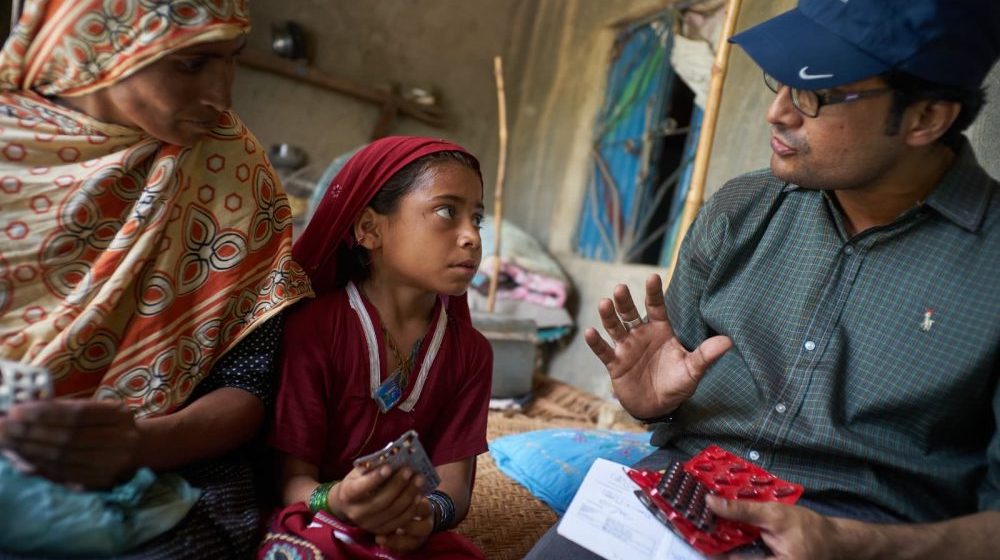
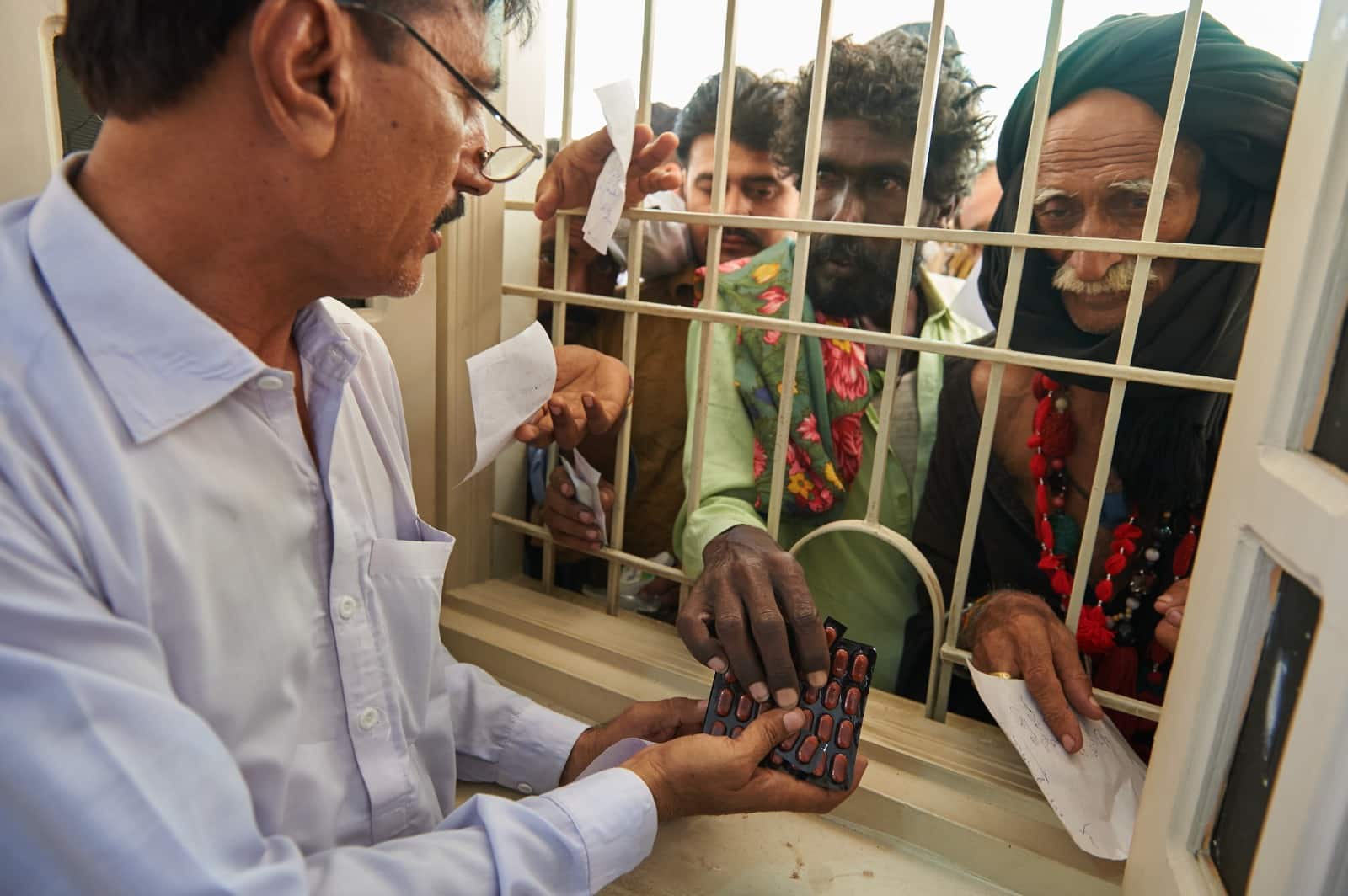
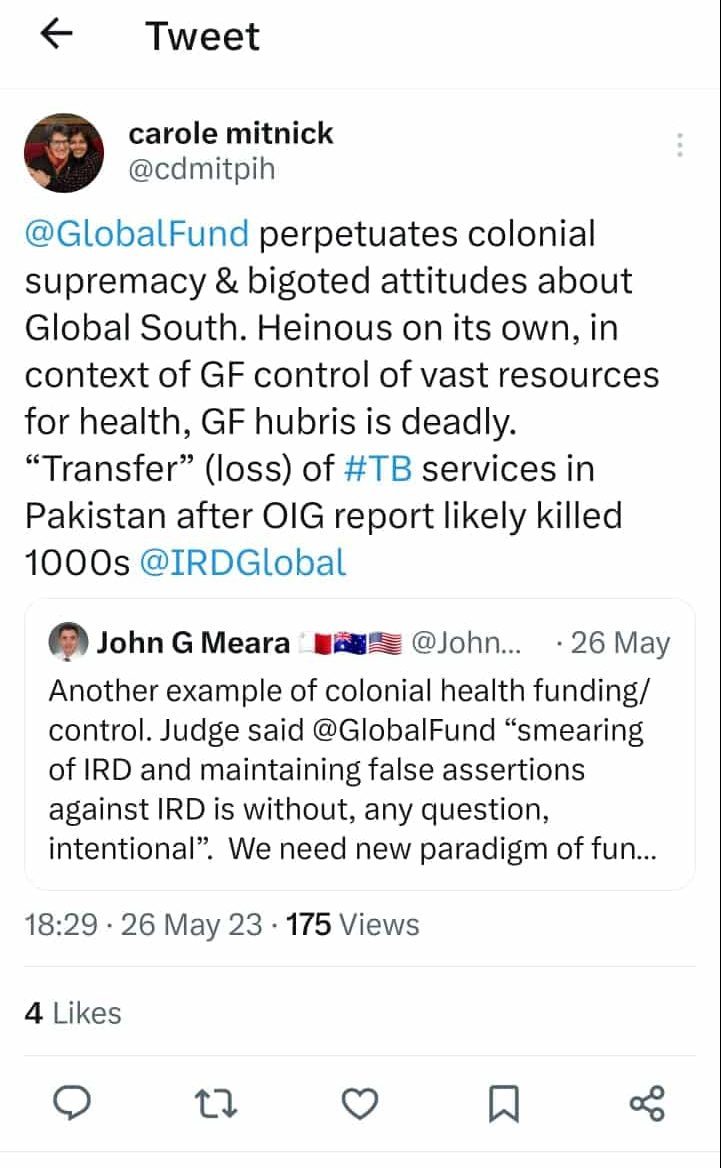
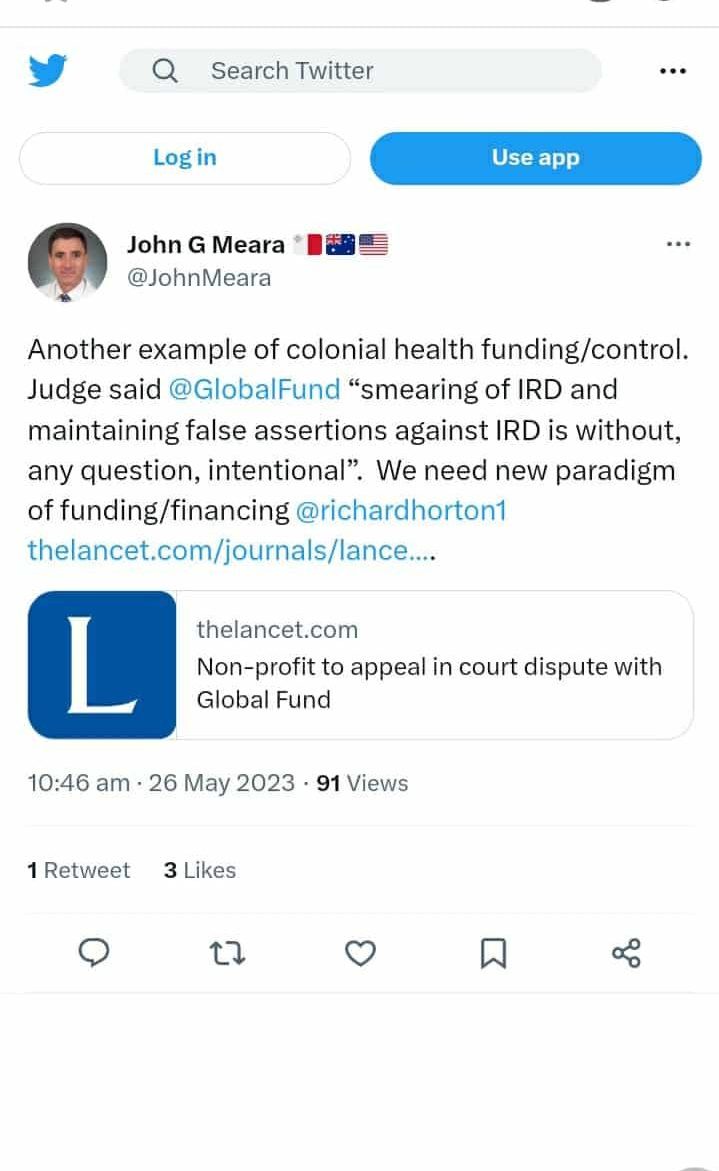



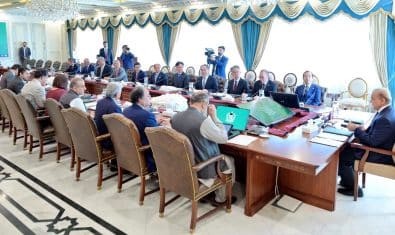

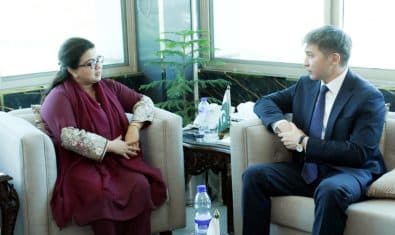
















I personally think that Pakistani NGO’s must be very careful when it comes to funding from INGO’s. Nothing is for free. There is always a bigger price to pay which we as a nation don’t see at all.